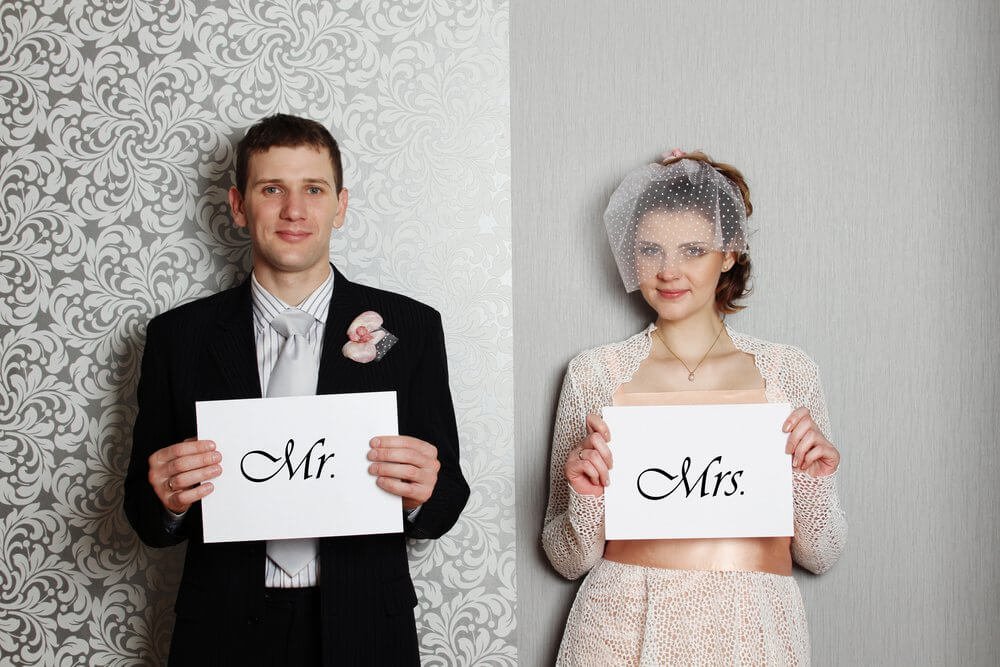
Miss, Mrs., Ms., and Mx. They are not synonyms for the same thing. If you are addressing someone with the wrong name could result in an offense, which is why it’s crucial to understand the distinction between these four possibilities. This guide will explain the way they’ve been used in the past and the best way to use them in the present. This is a general guideline If someone informs you that they like a certain name, that’s the title you should be using to address them.
When you’re planning to marry now is the time to understand the difference between names Mrs., Ms. and Miss. Why? because you’re sending wedding invitations, not to mention that they could change. To avoid any confusion, we’ll explain precisely when and how to utilize each title. This is the official guide for Ms. and Mrs. Mrs. vs. Miss.
What’s the difference between Mrs., Ms. and Miss?
When you address an individual in person or through an email or a letter, titles are a sign of respect. Men are usually addressed as Mr. however, the process is somewhat more complicated for women. There are three formal titles that women are able to use: Miss, Ms. or Mrs. If you use the wrong name for a woman could be considered rude or unprofessional If you wish to avoid making a major social error, it’s crucial to know the distinctions between the three to correctly use these prefixes.
Miss
“Miss”, when attached to the name, is a symbol of respect and respect to a female child as well as an unembarrassed woman. It is employed by itself (as an address word) or when combined with a name or descriptor of an opulent characteristic, or something that the person is representing.
Miss Becky Clark won the spelling contest.
I’m sorry, Miss. You’ve dropped your bag.
Don’t you feel like Miss James who lived across the street?
You’re definitely Miss Congeniality today.
In the past, in formal settings the custom was to typically use “Miss” along with an unmarried woman’s last name regardless of how much they knew about the person at issue. Also, it was used in cases where the marital status of the woman was not clear. The title was used to women who held positions of authority for example, such as teachers or supervisors. In these situations it was considered acceptable to keep using”Miss. “Miss” title until the recipient invited you to change her name.
The modern usage of “Miss” is considered more appropriate for younger women. The idea associated with “Miss” as an unmarried woman is not appropriate by contemporary standards, because a majority of women don’t want being addressed in a manner that is a reference the status of their spouse. (Read here for more suggestions that are non-marital status-neutral.)
Notice: In some geographic zones, “Miss” appears with an initial name, which is an expression of affection or respect. When coupled with a full name, “Miss” can also be used to refer to a reprimand, particularly when it’s used in reference to children.
Thank you for your invitation, Miss Jennifer. We’ll see you later!
Miss Tonia Amanda Hills! Get this mess cleaned up now!
Make use of the prefix Miss to refer to young, unmarried girls or women younger than 18. Legally, any woman who is not married can be called Miss however, the term could be a bit childish and unprofessional when dealing with women who are older or women who have been divorced. In these kinds of cases, it’s the sticky ones which create Ms. the best option, particularly in formal settings. For girls who are under 18 years old it’s acceptable to use the term Miss instead of Miss. If you need to doubt it, speak to Ms.
Mrs
A prefix like Mrs. is commonly used to refer to any woman who is married. Today there are many women who decide they would prefer to keep their name, instead of adopting their husband’s. They continue to be referred to by the name of Mrs. If a widowed lady can also be referred to as Mrs. in respect for her husband who died. Some divorced women choose to use the name Mrs. however it varies according to the age of the woman and their personal preferences. Traditionally, this title will be a part of the husband’s title with the initials and last name (Mr. as well as Mrs. John Smith) however, this is becoming less popular. Make use of this title to show respect when addressing women married to one another or when speaking to a woman in power to show respect.
“Mrs.” has been an honorific title to a widowed or married woman. Like “Miss”, it appeared with names and particulars. Sometimes, the title contained their partner’s initials and last name. However, this practice is becoming less frequent because women want to be addressed using their own names.
Mrs. Lee was my 7th-grade English teacher.
The envelope should be addressed to Mrs. Lilian David.
In professional (and in other formal) contexts, when speaking to married women and talking to women in an authority position the custom was using “Mrs.” along with their last name. Also, it was considered appropriate to wait until an invitation was given to change the formal title prior to making use of their first name.
Mrs. Davis is an incredible electrical engineer.
In modern times, “Mrs.” is utilized less and less often especially in professional situations. However, it is an option on a lot of official documents and forms.
Ms.
Ms. can be the correct description of every woman, regardless of the state of marriage. It’s a generic word that was coined around in the 1950s, as women began to voice their desire to be recognized in a way that was not related to their marriages, and gained into the 1970s when there was the movement for women’s rights. Ms. is known as as mizz similar to quiz and not miss like kiss. It’s the female equivalent to Mr. and is employed in any context to describe women who are adults. Married women are commonly called Ms. In a professional situation in which marital status isn’t recognized or considered to be relevant However, it’s usually used to refer to young women who aren’t married as Mrs. is a reference to married women, while Miss depends heavily on the age. If you’re not certain whether a woman is married, you’re safe to use Ms.
What happens if you don’t know whether you’re engaged or not? Contrary to “Miss” or “Mrs.”, “Ms.” does not indicate marital status, which is why it was a great choice for those who didn’t have the background. The name was first used in the 1950s and gained in popularity in the feminist movement of the 1970s, when “Ms.” seemed a an appropriate alternative to “Mister,” a title of respect to both married and unmarried men.
It’s a pleasure to have you as a guest, Ms. Alvin.
Will I be Ms. or Mrs. after I get married?
Ms. or. Mrs.–which do you prefer? In short, it depends. The majority of wedding brides that change their names after their wedding are known as “Mrs.” after marriage as it typically implies that they’re sharing a surname with your partner (as as in “Mr. and Mrs. Smith”). If you’re still using the name of your birth, you may use “Ms.” instead, or keep “Mrs.” as in “Mr. Smith and Mrs. Brown.” It is also possible to go by “Mrs.” may use “Ms.” If you’d prefer that be respected by your name and to not be tied to your marital status in any way.
Addressing Wedding Invitations
The way you address the wedding invites is as crucial as the information printed on the invitation itself. You value your guests, and that is the reason they’ve been chosen to take part in your wedding ceremony. With the knowledge you have gained about the distinctions in Miss, Ms. and Mrs. Address both envelopes using the correct name.
If the woman is married and has a husband, you can you can use Mrs. If you’re hosting couples the choice is yours whether you’d like to name the names of both following their respective names (Mr. James and Mrs. Jennifer Bobs), or utilize both titles in conjunction and the spouse’s (Mr. John and Mrs. John). The latter option is more formal, however be cautious if you’re unsure whether the woman has decided to keep her initials. If you’re just inviting women, and they’re married, you can use Mrs.
If you’re inviting an adult who is not married woman or not sure if she’s marriedor not, use Ms. In addressing an invitation to a couple who are not married make sure to write the name of the man first, then women’s (Mr. John Smith and Ms. Jane Doe).
For girls younger than 18 years old, Use Miss and make her name be a reference to those of her parents, if they are also present (Mr. as well as Mrs. Clark Smith, and Miss Jennifer).
If you’re uncertain and aren’t sure whether you would offend someone with giving them the wrong name It’s acceptable to inquire about their preferred titles prior to using the same in correspondence or introductions. The titles you choose to use are, in essence, a sign of respect. And taking the time to contemplate the woman’s preferences on the way they want to address them is considered to be an act of respect and proper manners.
If the guest is a minor it’s fine to make use of “Miss.” If she’s not married choose “Miss” or “Ms.” (Note that “Ms.” is often preferred by women of who are 18 or older). If you’re married and know the name she’s used, then write the title. If you’re not sure, “Ms.” is an appropriate and safe option.

